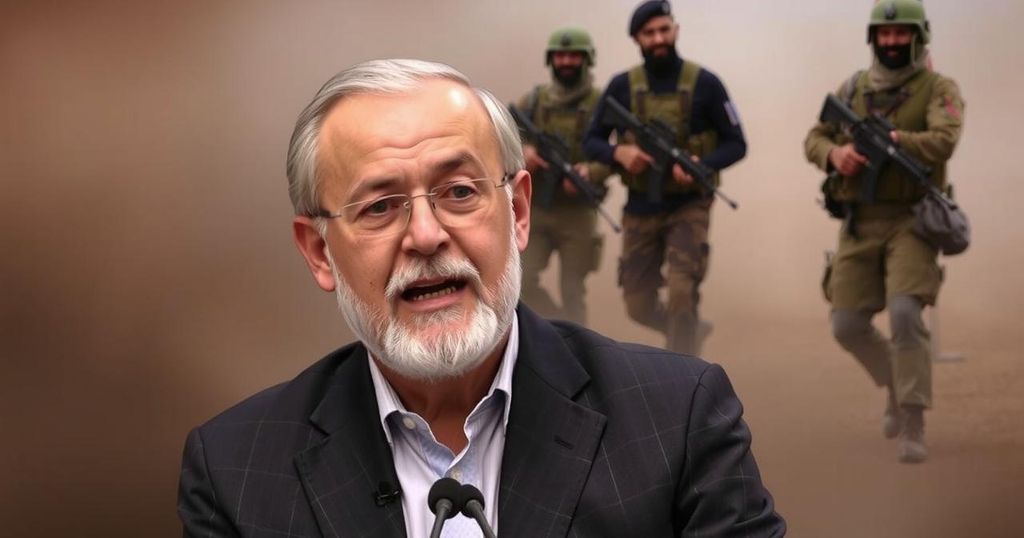Assad’s Final Appeals: Turkey’s Role in His Ouster and Iran’s Support

Before his ouster, President Bashar al-Assad voiced concerns to Iran about Turkey’s backing of rebel groups seeking to overthrow him. His discussions with Iranian officials underscored a distressing alignment of Turkey with U.S. and Israeli interests. As Assad fled to Moscow, the implications for Iranian influence in Syria became dire, indicating significant geopolitical ramifications as the civil war evolves.
In the last moments before his ouster, Syrian President Bashar al-Assad expressed frustration to Iran’s Foreign Minister Abbas Araghchi regarding Turkey’s support for Sunni rebel factions attempting to overturn his regime. Iranian officials revealed that during their meeting in Damascus on December 2, 2023, Assad articulated his dissatisfaction with Turkey’s escalating involvement in his removal. In response, Araghchi assured Assad of Iran’s unwavering support and indicated intentions to address these concerns with Turkish officials.
The following day, Araghchi met with Turkish Foreign Minister Hakan Fidan, where tensions were palpable as Iran conveyed its discontent over Turkey’s alignment with Western and Israeli interests in supporting rebel movements. Fidan countered, blaming Assad for the crisis, citing his failure to pursue sincere peace talks as the catalyst for ongoing conflict. In stark contrast, Iranian Supreme Leader Ayatollah Ali Khamenei attributed Assad’s downfall to a coordinated effort led by the United States, with claims that Turkey also played a significant role, though he did not explicitly name the country. Turkey has long been a substantial supporter of opposition factions since the onset of Syria’s civil war in 2011.
The collapse of Assad’s regime is perceived as a significant setback to Iran and its ally, Hezbollah, whose influence has been fortified through their alliance with the Syrian government. Iran has heavily invested in supporting Assad, deploying military resources to maintain his power amidst ongoing rebellion. Furthermore, the shifting military dynamics in the region have resulted in Hezbollah withdrawing fighters to engage in a protracted conflict with Israel, fundamentally altering the landscape of the Syrian military’s strength against opposition forces.
The political instability in Syria has escalated since the civil war erupted in 2011, leading to severe geopolitical ramifications that extend beyond its borders. President Bashar al-Assad’s regime has faced significant challenges from various rebel groups, particularly those supported by neighboring countries such as Turkey. The Iranian government has been a staunch ally of Assad, offering military and financial support to thwart these insurgent uprisings, which threaten to diminish Iranian influence in the region. The recent developments signify pivotal shifts in Middle Eastern politics, especially concerning the roles of Turkey, Iran, and the United States in Syria’s chaotic landscape.
In summary, the final days of Bashar al-Assad’s rule were marked by his expressed grievances towards Turkey’s support for rebel factions, highlighting the international dimensions of the Syrian conflict. Iran’s assurances of continued support underscore its commitment to maintaining influence in Syria despite the challenges posed by both domestic uprisings and external actors. Fidan’s assertions regarding Assad’s governance further illustrate the complexity of the conflict, illustrating how leadership and diplomatic relations shape outcomes in regional geopolitics. The evolving interplay between these nations will inevitably impact the future stability of Syria and its surrounding region.
Original Source: www.voanews.com








